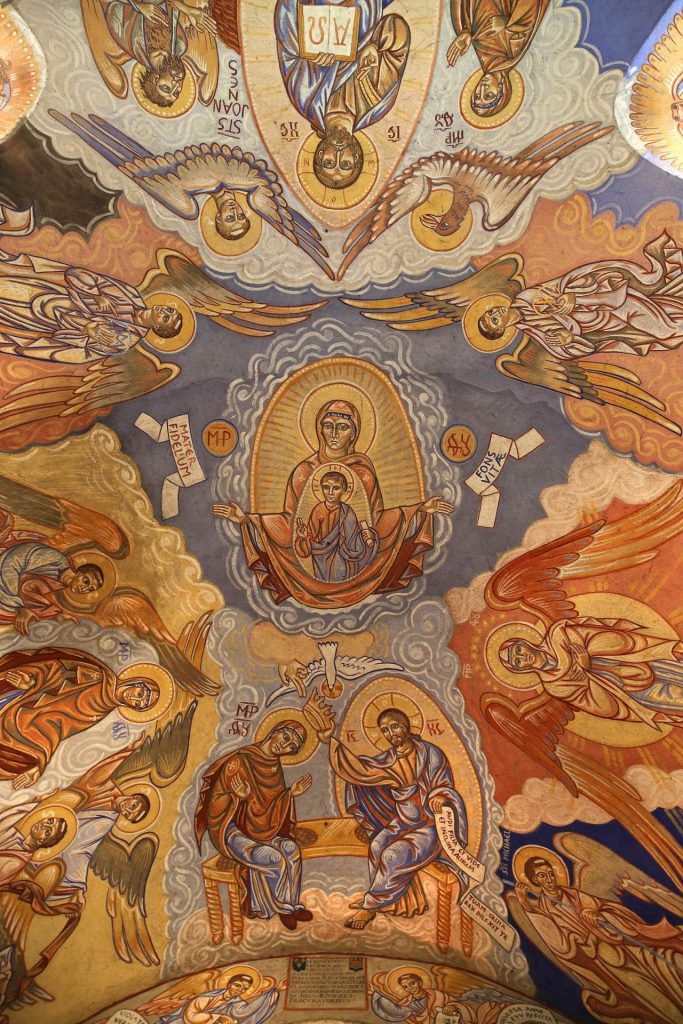Built at the beginning of the 1950th century along the eponymous stream, the Notre-Dame de Treize Pierres chapel has an exceptional painted decoration. All of its walls are decorated with polychrome frescoes created by the Russian-born artist Nicolaï Greschny in the early XNUMXs.
A place of legends

On March 19, 1509, the Virgin Mary appeared to Colonges, a modest peasant whose cart had become mired in the brown waters of the flooding stream. Accompanied by the twelve apostles, each of whom took their place on buried rocks, she allowed the vehicle to cross the passage. Very quickly, a pilgrimage developed on the miraculous site and the bishop of Rodez had the thirteen stones enshrined in the ground of the sanctuary which he inaugurated on July 1, 1510.
Some say that at the beginning of the XNUMXth century, while digging with her hooves and her horns, a cow would have discovered thirteen lapidary pieces which, reconstituted, formed a statue of the Virgin Mary. The religious of Loc-Dieu Abbey wanted to take the beast away but it always came back to the place of its discovery. This is how they built a first oratory, known as "Miracles", the day after the crusade against the Albigensians.
A place of sacred art
In 1952, the Russian-born painter Nicolai Greschny adorned the walls and the vault of polychrome frescoes exceptional. The latter devoted a prominent place to the Virgin Mary, with scenes ranging from the Annunciation to the Apocalypse via the Nativity, Dormition et the coronation. Paying homage to the carter Colonges, to Christ and to Saint Roch, this proliferation of colors and characters of Byzantine and Orthodox inspiration is associated with a very expressive Way of the Cross that punctuates the artistic ensemble.
An unknown story
In 1506, an epidemic of plague devastated the population of Villefranche. The inhabitants then decided to dedicate a sanctuary to the Virgin Mary to protect them from this scourge. 120 years later, it was enlarged by two chapels and the stone portal of the classic style entrance. During the French Revolution, the chapel was sold as “national property” and only regained its religious function in the 1850s.
Outside of the medieval country house, away from the traditional tourist circuits and modest in appearance, the Chapel of Our Lady of Thirteen Stones has a rich heritage that deserves more attention. The clerks of Saint-Viateur who are still the managers today organize guided tours there, all year round for groups and in July, August and September for individuals.
Visit the chapel of Treize Pierres
Chapel of Our Lady of Thirteen Stones
Interactis car park (West Aveyron – Community of Communes)
12200 Villefranche-de-Rouergue








